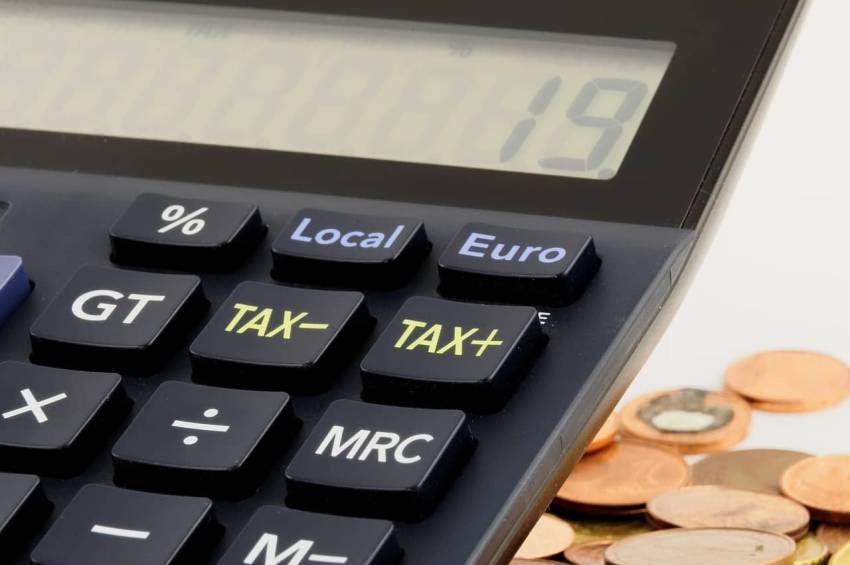
What VAT Applies to a Business Transfer? A Complete Guide for Entrepreneurs
If you're thinking about transferring or acquiring a business, you're probably dealing with the big question: What VAT applies to a business transfer? It’s completely normal to be concerned about this because, let’s be honest, no one wants trouble with the tax authorities. It can be a real headache if you don’t have things clear from the start. So, in this article, we want to help you sort out all those doubts that might be running through your mind about how VAT works in these cases, when you have to pay it, and when you can breathe easy because you're exempt.
To be fair, VAT can be a bit confusing (we know this from experience). But we’ll do our best to make everything clearer by the end. Or at least, we’ll try.
What is a Business Transfer and How Does It Work?
A business transfer basically means passing an entire business, everything included, from furniture to customers, from one person to another. Imagine you own a coffee shop and decide to sell it so you can move to Málaga or Bali, which sounds even better. Well, this is exactly what happens. You find someone willing to take over your location, the tables, the chairs, the secret coffee recipes, everything.
The process is fairly straightforward, though not too simple because tax authorities make sure of that.
- First, the buyer and seller agree on the terms.
- Then, a detailed contract is prepared. This is crucial to get right.
- Finally, you have to comply with tax obligations, and this is where the real paperwork begins.
Differences Between Buying Assets and a Business Transfer
One thing that often confuses people is the difference between buying individual assets like a coffee machine, an industrial oven, etc. and transferring an entire business. Buying individual assets usually includes VAT, whereas a complete business transfer often does not. This is a key detail, trust us.
Tax Obligations in a Business Transfer
Since we’re talking about paperwork, be prepared because there are always some important steps to follow.
- Filing tax returns like VAT, personal income tax, and property transfer tax, all those things that make people nervous.
- Notifying the tax authorities about the transfer.
- Paying any applicable taxes.
Sounds boring? It is. But it’s also necessary, and it’s much better to get it right from the beginning.
VAT Application in Business Transfers
But let’s get straight to the point. What happens with VAT? Because that’s why we’re here.
Is VAT Charged on a Business Transfer? Cases Where It Applies
Well, in most cases, VAT does not apply to a business transfer. But be careful, there are exceptions. For example:
- If you sell assets separately that are not part of an autonomous business unit, like selling just the coffee machines.
- If the transaction includes new real estate or products that are not typically part of the business. A bit unusual, but it happens more often than you’d think.
VAT Exemptions in Business Transfers: When Is It Not Paid?
The most common scenario is this. The transfer is exempt from VAT. Article 7.1.a of the VAT Law makes this clear. And honestly, this is a huge advantage because you save a lot of money and avoid some headaches. The condition? The business must remain operational after the transfer. So, no turning a coffee shop into a mobile phone store overnight, which wouldn’t make much sense, but hey, you never know.
VAT Rate on a Business Transfer
In those rare cases where VAT does apply, it’s usually taxed at 21%, unless what you're selling qualifies for a reduced VAT rate. But that’s a whole different topic. Better check before making assumptions.
Differences Between VAT and Other Taxes on Business Transfers
Now, let’s complicate things a little more, sorry, but it’s necessary because you’ve probably also heard of Property Transfer Tax (ITP).
VAT vs. Property Transfer Tax (ITP)
The key thing to understand here is that ITP and VAT are incompatible. You either pay one or the other. Generally, if VAT doesn’t apply to the transfer, you might have to pay ITP instead. This depends a lot on the region, as tax rules vary between different areas. More paperwork, more regulations, it’s a bit of a hassle, to be honest.
Other Tax Burdens to Consider in a Business Transfer
Beyond VAT and ITP, there are other potential tax obligations, such as:
- Personal income tax or corporate tax if you make a profit from the sale.
- Local municipal fees or business license costs.
- Possible additional taxes imposed by local governments.
Yes, local governments can get creative with their taxes. Better be prepared.
How to Properly Invoice a Business Transfer
Proper invoicing isn’t just about compliance, it’s also for your peace of mind. Tax inspections happen, and no one wants that, trust us.
Required Documentation and Legal Aspects
Here’s the basic checklist to keep things in order.
- A detailed business transfer contract, absolutely necessary.
- An invoice specifying VAT or stating the exemption.
- Certificates proving there are no outstanding debts with tax authorities or employees. This is often overlooked but incredibly important.
Practical Example of Invoicing With or Without VAT
Let’s look at two quick examples to make things clearer.
If you transfer your coffee shop as a whole business and VAT exemption applies.
| Concept | Amount (€) | VAT (%) | VAT (€) | Total (€) |
|---|---|---|---|---|
| Business transfer - Coffee shop | 30,000 | Exempt | 0.00 | 30,000 |
And if you’re only selling equipment, VAT applies.
| Concept | Amount (€) | VAT (%) | VAT (€) | Total (€) |
|---|---|---|---|---|
| Hospitality Equipment | 10,000 | 21% | 2,100 | 12,100 |
See? The difference is crystal clear.
Conclusion: Key Aspects to Consider About VAT on a Business Transfer
To sum up, because we may have gone off track a bit, happens when talking about taxes.
- Usually, you don’t pay VAT if you're transferring a fully operational business.
- If you're selling individual assets, then yes, VAT applies, usually 21%.
- Always check your specific case. Every situation has its quirks.
We know this is a lot of information at once, and you might even have more questions now than when you started reading. That’s completely normal, it happens to everyone. But that’s exactly why we’re here. If you need help or expert guidance on your business transfer, reach out to our specialized team at Business in Spain.
Get in touch whenever you need. We’re here to help.









